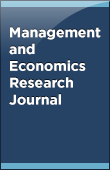


This study examines the experience of auditors in the higher echelons and stakeholders in top management paving the way to answer what are the differences of expectations that exist regarding the responsibilities of the independent auditors in the current business context. Through an interpretive approach, this research contributes to reflexivity. Seven professionals constitute the data corpus, and critical discourse analysis was used to draw upon their lived experiences. The results indicate a clear perception of difference in expectations among respondents who are auditors and the financial controllers, but with different intensities, thereby posing different societal impacts on the understanding of financial statements. The main discourses that surge are: a) discrepancy between the level of intensity by the interested parties; b) non-dissemination and comprehension of the standards that guide the work of the auditors; and c) identification of a possible gap derived from media and financial commentators exaggerating on expectation-gap recklessly. Also, d) Auditor`s mitigation of risks prudently tied to standards, and e) on the side of the controllers is the source of responsibility. This puts forth challenges for the broadening of the understanding and education about the expectation gap.